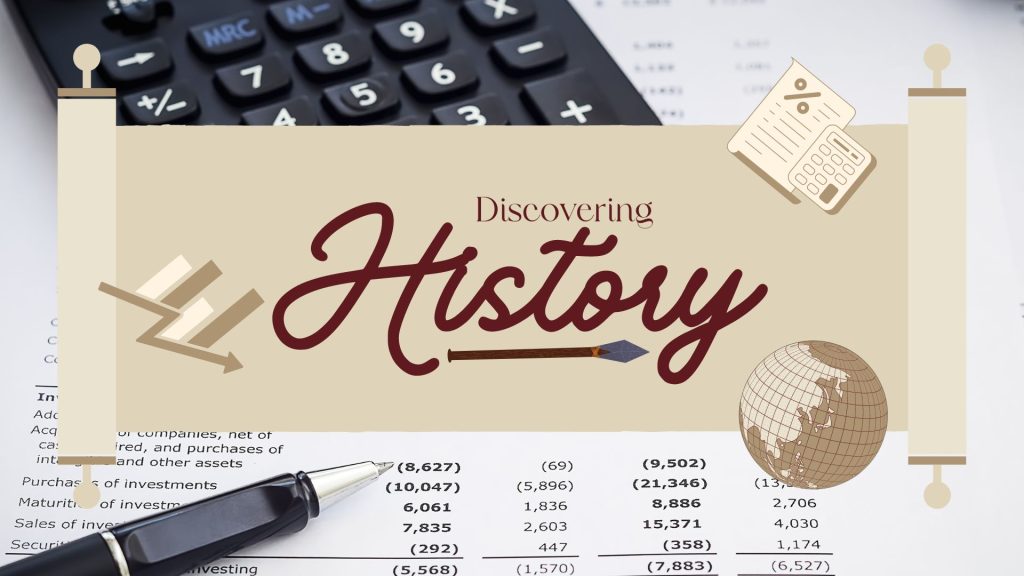
Introduction
Accountancy, as a discipline, has a rich and varied history that mirrors the evolution of human societies and their economic structures. From ancient civilizations to the complex financial systems of today, the history of accounting is a fascinating exploration of humanity’s need to record, analyze, and manage financial information.
Ancient Accounting Practices
Mesopotamia and the Birth of Writing
The origins of accounting can be traced back to ancient Mesopotamia, where the need to keep records of agricultural production led to the birth of writing. Clay tablets with marks representing units of goods marked the inception of basic accounting practices.
Ancient Egypt: A Civilization of Scribes
In ancient Egypt, scribes played a crucial role in maintaining records of harvests, taxes, and trade transactions. Hieroglyphics on papyrus scrolls reveal early accounting methods used to track the wealth of the pharaohs and the kingdom.
Double-Entry Bookkeeping in Renaissance Italy
The next significant leap in accounting occurred during the Renaissance in Italy. Luca Pacioli, a Franciscan friar, published “Summa de Arithmetica, Geometria, Proportioni et Proportionalita” in 1494, introducing the world to double-entry bookkeeping. This revolutionary system transformed accounting into a structured and systematic practice.
Industrial Revolution and the Rise of Modern Accounting
Rise of Corporations
With the Industrial Revolution came a surge in business activities. The rise of joint-stock companies and large-scale industrialization necessitated more sophisticated accounting systems to manage the complexities of financial transactions.
The Role of Accountants in the 19th Century
As businesses grew in size and complexity, the demand for skilled accountants increased. Accountancy evolved into a recognized profession, with organizations such as the Institute of Chartered Accountants in England and Wales (ICAEW) being established in the 19th century.
20th Century: Standardization and Globalization
Birth of the Big Four
The 20th century witnessed the consolidation of major accounting firms into what is now known as the “Big Four” – Deloitte, PricewaterhouseCoopers (PwC), Ernst & Young (EY), and KPMG. These firms played a pivotal role in shaping global accounting standards and practices.
The Impact of Technology
Advancements in technology, particularly the introduction of computers, drastically changed the accounting landscape. Spreadsheets and accounting software revolutionized how financial data was processed, making accounting more efficient and reducing errors.
Contemporary Accounting: Challenges and Innovations
International Financial Reporting Standards (IFRS)
The push for global financial reporting consistency led to the development of International Financial Reporting Standards (IFRS). The convergence of accounting standards aimed to create a unified language for financial reporting across borders.
Accounting Scandals and Regulatory Changes
The turn of the 21st century brought attention to accounting scandals like Enron and WorldCom, leading to increased scrutiny and regulatory reforms. The Sarbanes-Oxley Act (SOX) in the United States was a response to restore confidence in financial reporting.
Technological Innovations: AI and Blockchain
In recent years, the accounting profession has been influenced by technological innovations like Artificial Intelligence (AI) and Blockchain. These technologies offer new ways to enhance accuracy, security, and efficiency in accounting processes.
Conclusion
The history of accounting is a journey through time, reflecting the changing needs of societies and businesses. From the rudimentary records of ancient civilizations to the sophisticated financial systems of today, accountancy has adapted and thrived. As we navigate the complexities of the modern world, the history of accounting serves as a guide, reminding us of the discipline’s enduring importance in understanding and managing the flow of economic resources.